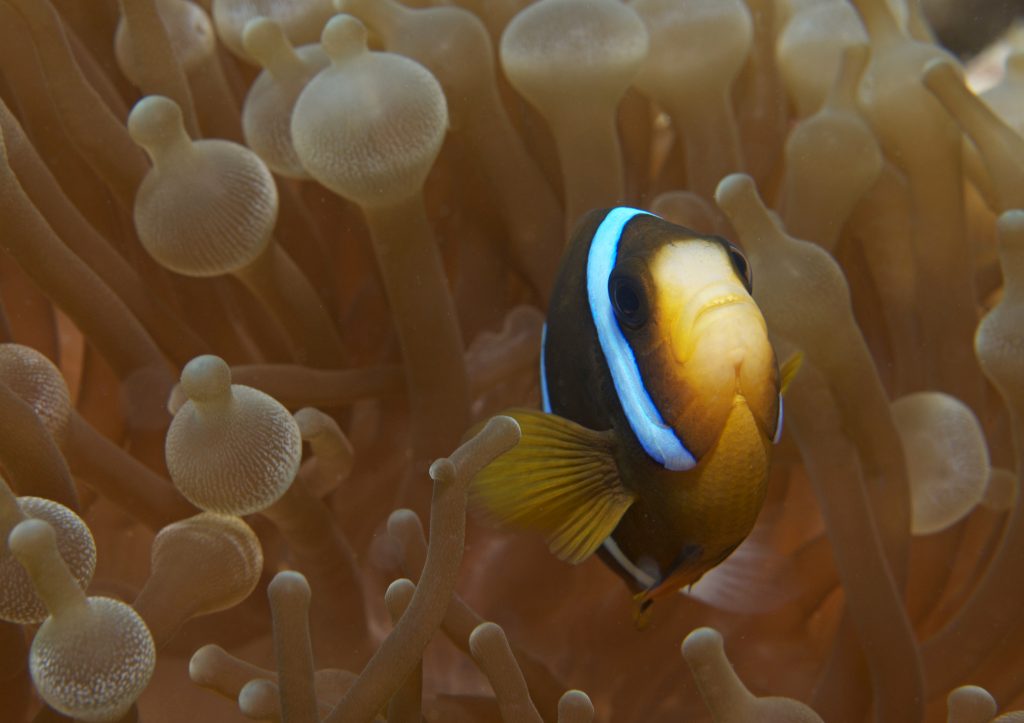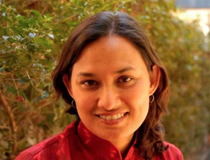50 Reefs Q&A: Prevention is better than a cure

The 50 Reefs Initiative brings together leading scientists and conservation practitioners from around the world to identify the top 50 coral reefs least vulnerable to climate change that are capable of regenerating in the future. They recently met to discuss their regional expertise and local strategies to inform a global strategy ensuring the survival of reef ecosystems around the world.
The following Q&A is the second in a series with three experts about their experiences with coral reefs and why they are a part of the 50 Reefs Initiative.
 We talked with Sangeeta Mangubhai, who joined the Wildlife Conservation Society in 2014 and is the Director of the Fiji Country Program. Originally from Fiji, she completed her PhD in Coral Reef Ecology in 2007 at Southern Cross University in Australia. She has 17 years of environmental management and science experience from the Indonesia, the South Pacific, East Africa and Australia. Her skills include multi-objective marine protected area design and management, marine spatial planning, ecosystem-based management, coral reef fisheries, environmental policy, governance and climate change. Specialist in designing monitoring programs to understand impacts of disturbances on coral reefs communities, and the ‘return of investment’ of conservation strategies and interventions. She is currently an adjunct scientist with the New England Aquarium, a member of the World Commission on Protected Areas, editor on the journal Pacific Conservation Biology and on the Executive Committee for the Women in Fisheries Network – Fiji.
We talked with Sangeeta Mangubhai, who joined the Wildlife Conservation Society in 2014 and is the Director of the Fiji Country Program. Originally from Fiji, she completed her PhD in Coral Reef Ecology in 2007 at Southern Cross University in Australia. She has 17 years of environmental management and science experience from the Indonesia, the South Pacific, East Africa and Australia. Her skills include multi-objective marine protected area design and management, marine spatial planning, ecosystem-based management, coral reef fisheries, environmental policy, governance and climate change. Specialist in designing monitoring programs to understand impacts of disturbances on coral reefs communities, and the ‘return of investment’ of conservation strategies and interventions. She is currently an adjunct scientist with the New England Aquarium, a member of the World Commission on Protected Areas, editor on the journal Pacific Conservation Biology and on the Executive Committee for the Women in Fisheries Network – Fiji.
Can you tell us about the problems that are affecting coral reefs globally?
Coral reefs are facing an onslaught of stresses and pressures from land-based pollution, destructive fishing, overfishing, and climate change. Any one of these human caused stresses have the potential to impact coral reefs. Together they are causing wide scale losses and declines in coral reefs all over the world at alarming rates. Even some of the more remote parts of the world, away from human habitation, coral reefs are impacted by climate change-induced thermal events that can cause coral bleaching.
While the Wildlife Conservation Society is global, are there certain coral reefs that you are prioritizing? If so, why?
Not all reefs are the same, and it is clear to scientists and conservation practitioners that some reefs are more resistant or resilient to disturbances. Protecting these reefs needs to be made a priority, as they are critical for reseeding degraded or damaged areas. It is also important we find these and study and learn more about what makes that more resilient, and what actions we can take to improve management in adjacent areas.
What’s your personal connection to the coral reefs and oceans?
Being from Fiji, the islands and the ocean are part of my identity, my heritage. As a Pacific Islander we have a deep connection to the ocean, and are completely dependent on coral reefs for food and livelihoods.
What are some of the challenges you’ve encountered as you work to protect Fiji’s reefs?
One of the greatest challenges is trying to keep up with the fast pace of development. We are struggling at times to find a balance between maintaining our cultural and traditions, and our desire to grow and develop economically as a nation. We are seeing losses to coastal ecosystems such as mangroves, seagrass and coral reefs, many of our fisheries have declined, and more recently our coral reefs were battered by a Category 5 Cyclone that passed through Fiji in early 2016, causing wide-scale damage to our reefs.
What’s one of the misconceptions you’ve encountered about saving coral reefs that you’d like to clear up?
It is important for decision makers to understand that there is no quick and easy solution to fixing a reef once it becomes severely degraded. Coral rehabilitation techniques are often cost-prohibitive, and cannot fix coral reefs at large scales. Fixing underlying local drivers of degradation (sedimentation, overfishing, etc.) is also a necessary precondition. My philosophy is prevention is better than cure, meaning and it is better we put our money into good management to keep our existing reefs healthy and functioning. If we have healthy reefs, they will naturally reseed damaged reefs.
How do you convey to the public that it’s important to save our coral reefs?
I think the best way is to get the public out onto the reefs and experience them, so they feel a real connection to them. I think it is sometimes hard for people to care for something they cannot see from the surface, or don’t get to experience because they live in a city. Let’s get them out there, and if we cannot let’s find ways of bringing the ocean to them through inspiring documentaries, films or public aquaria.
Who are some of the partners who are helping your organization with your work around the world?
Our partners range from government agencies, to regional organization, to other NGOs, to our generous donors. I am lucky because Fiji is still an appealing place to visit and developing science partnerships is reasonably easy – after all, who would not want to dive and study Fiji’s colorful vibrant reefs?
What gives you hope that our coral reefs can be saved?
I am still hopeful and optimistic about our coral reefs because I have seen Fiji’s reefs recover quickly from coral bleaching and cyclone events. I find some of my greatest inspiration from working with local communities, and doing what I can to support and empower them to be real stewards of the environment, and put both traditional and modern practices into place to protect and better manage coral reefs. We need to find ways of scaling up these efforts by local communities, to make a difference at a scale that will really count.